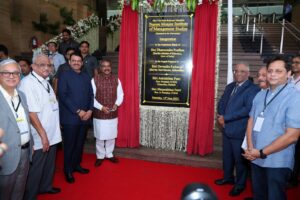
By Sunil Goyal
Research A word that carries both dreams and determination. It stands for passion, purpose, and above all, the guiding hand of a mentor. But what happens when that guiding hand turns into a gatekeeper of frustration?
In many Indian universities, research scholars today are trapped not in the thrill of intellectual discovery but in the unpredictable mood swings of their supervisors. Like a recurring tragic chorus of “Aa… ab laut chalen,” many scholars are forced to withdraw, sacrificing time, money, and most painfully, their mental peace, as if performing the final rites of a journey they never truly got to walk.
Some supervisors seem to have taken a doctorate in dismissal. Every suggestion is met with rejection. Titles, even when thoughtfully crafted are tossed aside with a cold “Not suitable, think of something new.” And the cycle continues,until one day, without informing the scholar, the title is silently changed, as if correcting a minor clerical error, not rewriting someone’s intellectual identity.
Then there is the DRC, the Doctoral Research Committee, meetings that feel more like sacred rituals than academic evaluations. Repetition replaces progress. The same issues, the same questions, the same silences. For scholars, it becomes a mental test of endurance, resembling the endless disrobing of Draupadi, humiliating and helpless. And every time, the justification remains unchanged: “It’s an internal matter.”
Worse still, many supervisors have mastered the “art of appearing busy.” Emails vanish into thin air. Feedback is rare, and when given, it reads more like revenge than review. Some have an uncanny interest in their scholars’ personal lives, especially details about spouses, food habits and whereabouts seem to take precedence over research milestones. Their expertise often lies not in academic journals but in personal intrusions and even illicit activities far removed from education.
If a scholar dares to achieve something independently, a publication, an international accreditation and invitation, a conference presentation, don’t expect applause. These accomplishments are ignored, even resented. The research, in their eyes, only matters if it glorifies their name. The final insult? A cold refusal to write a recommendation letter. Or worse, a vague and deliberately damaging one that ensures no institution comes near the scholar.
And still, they say, “It’s an internal matter.”
But the real question is, how did we let it get this bad? Isn’t it the supervisor’s foremost duty to promote research, not to suppress it? To support scholars, not sabotage them? It is high time that institutions of higher learning confront this reality. They must create transparent systems that hold supervisors accountable while empowering research scholars with dignity and voice.
Otherwise, we will lose more than just papers, we’ll lose the trust of a generation who will forever wonder:
“If only my guide had truly been my guide…”








Very good https://t.ly/tndaA
Very good https://t.ly/tndaA